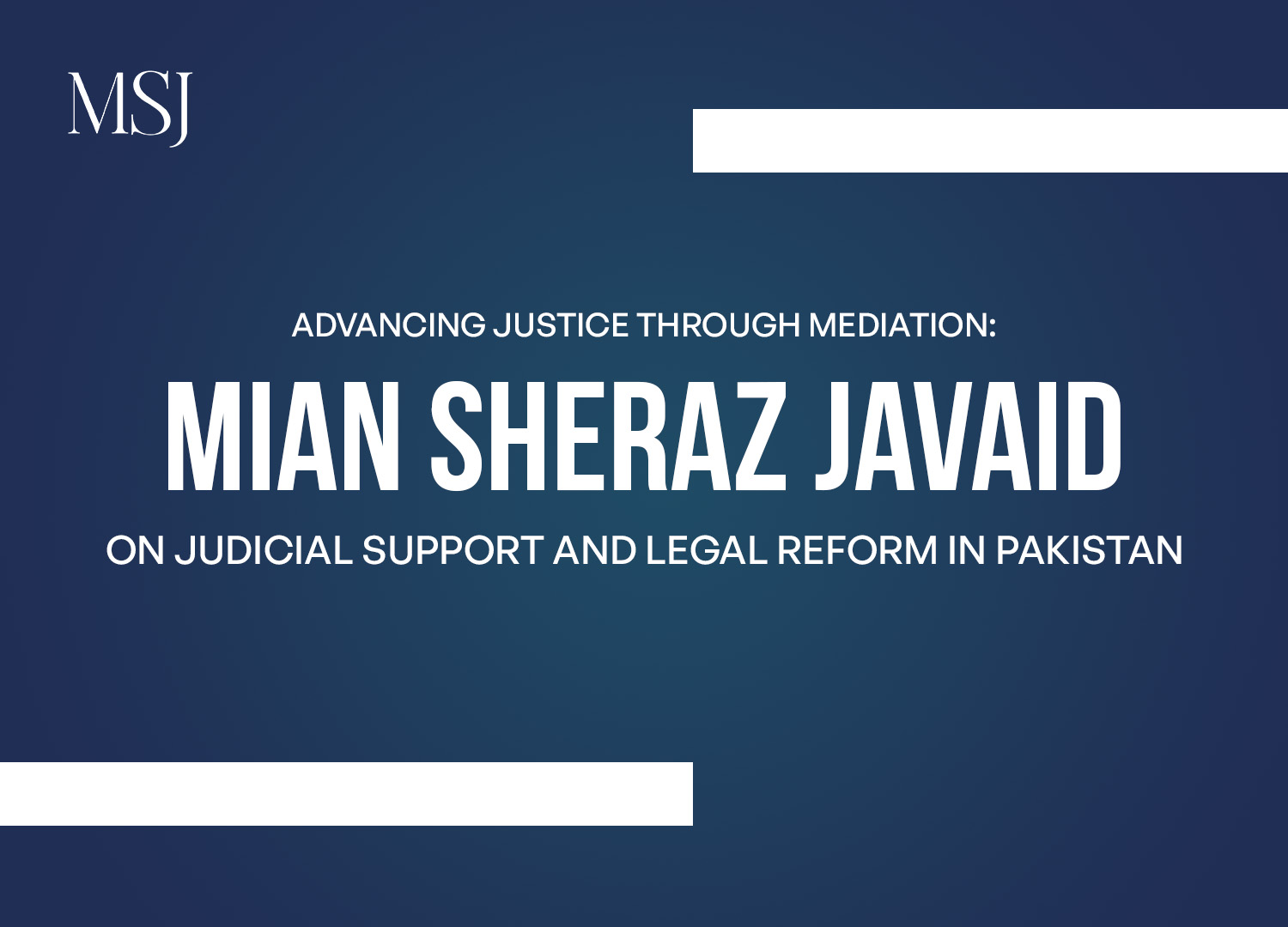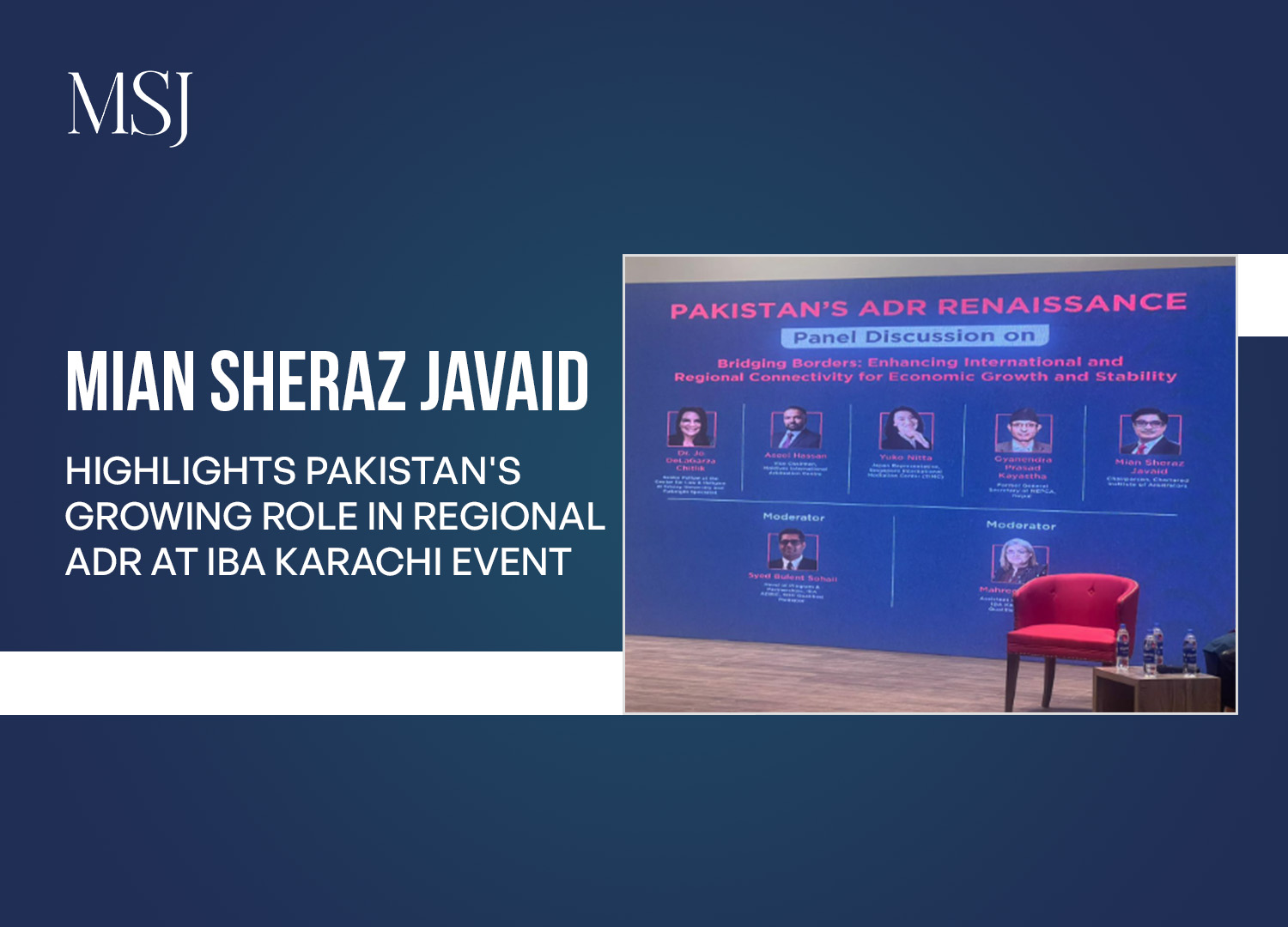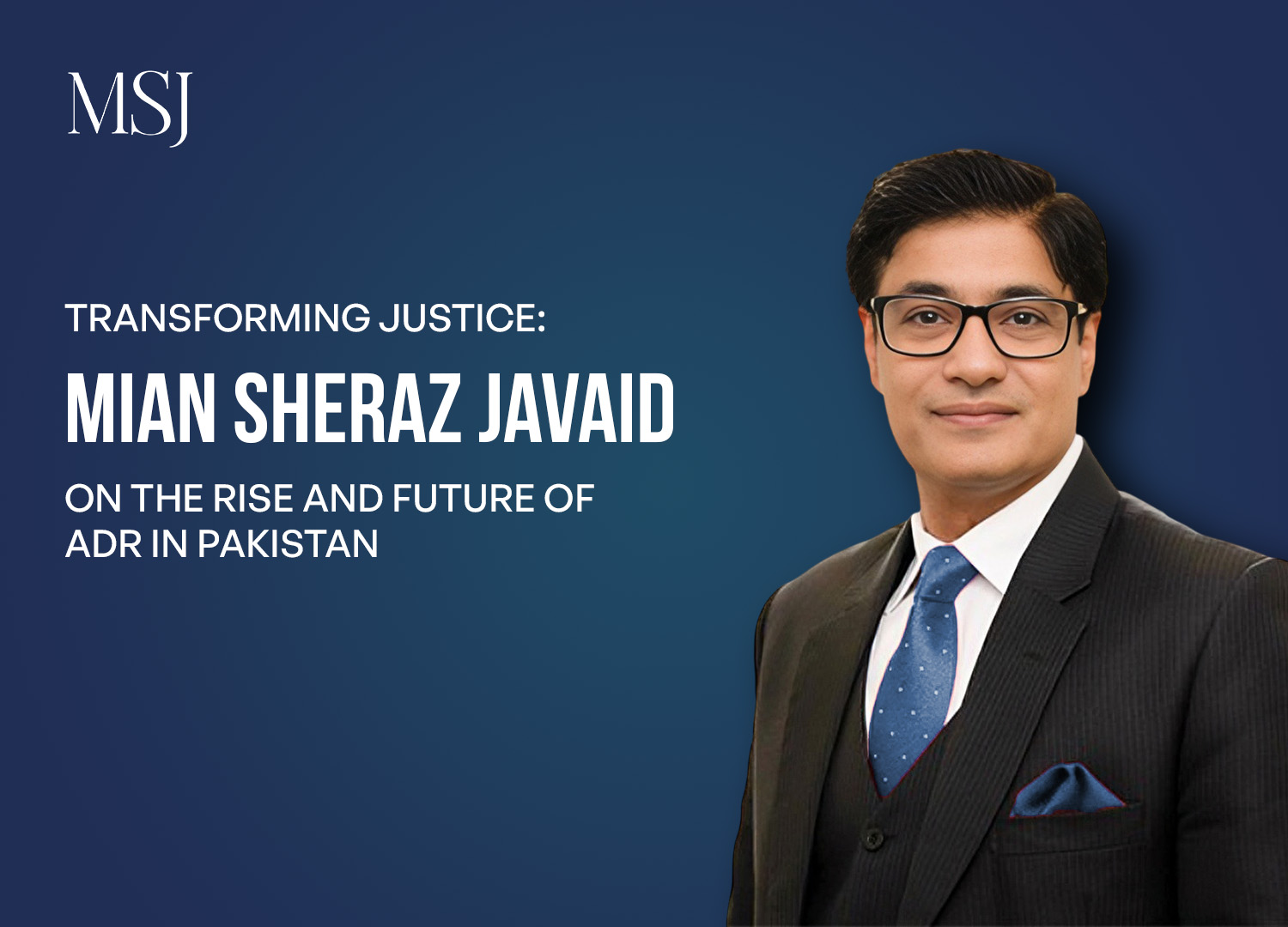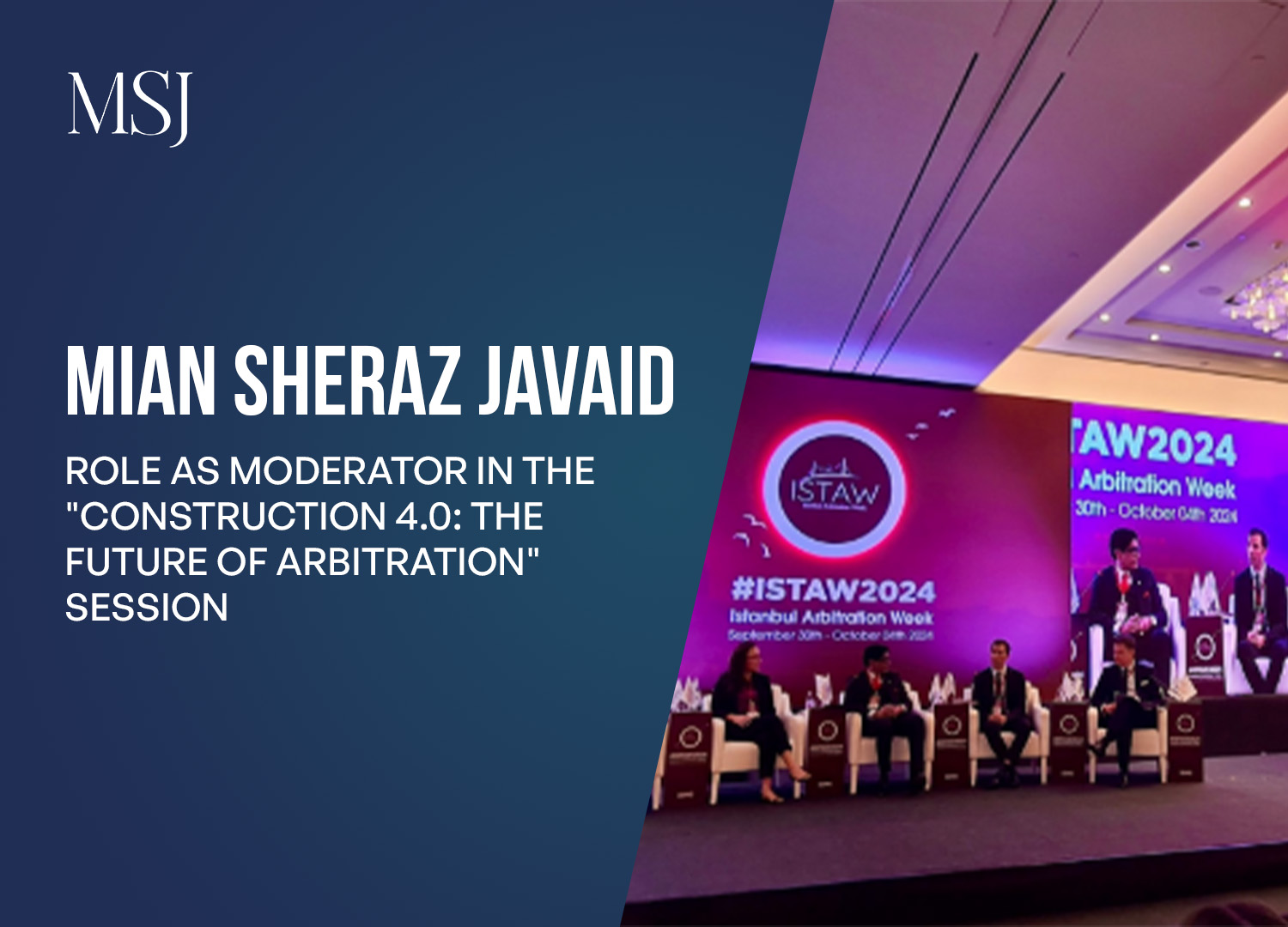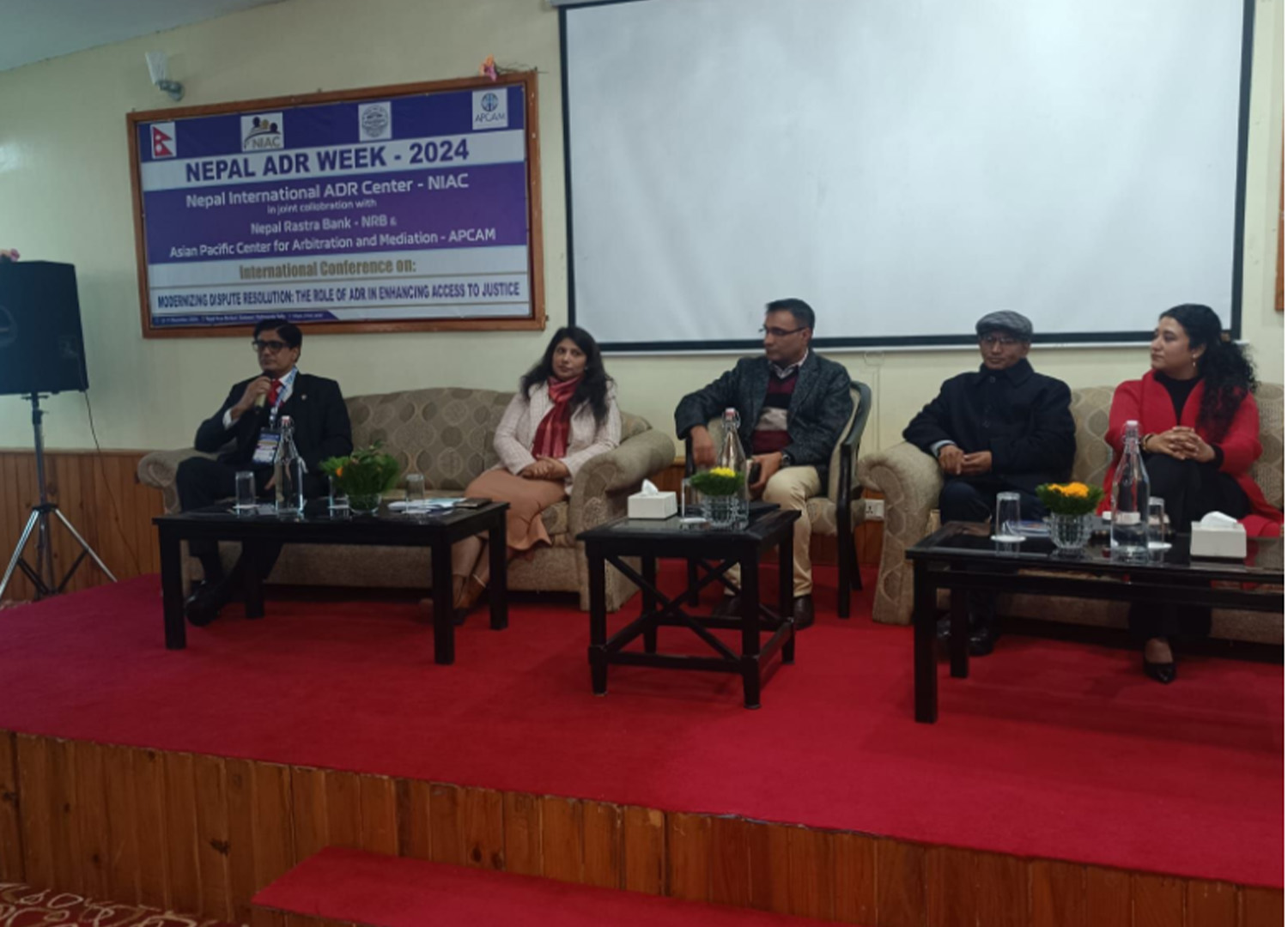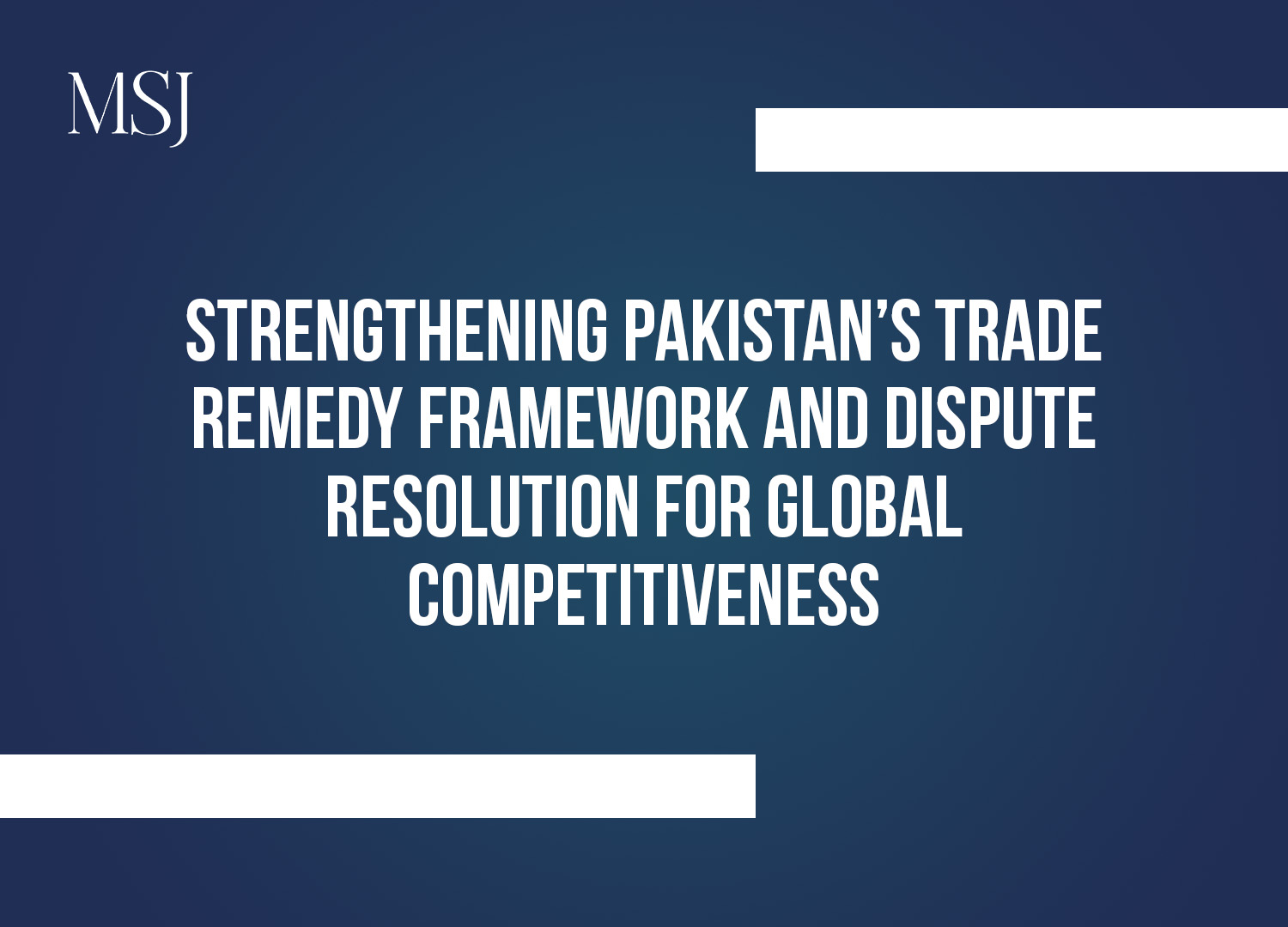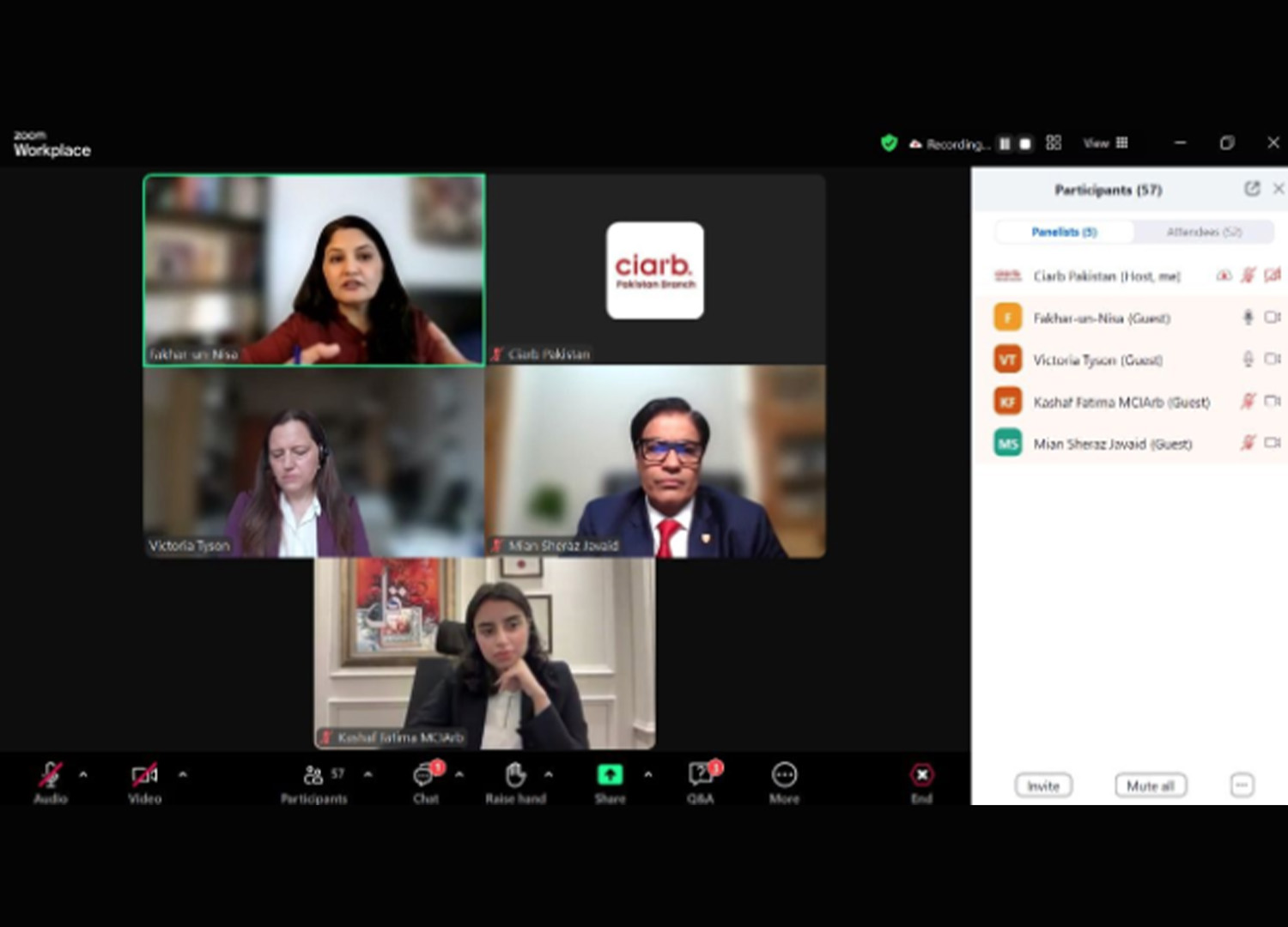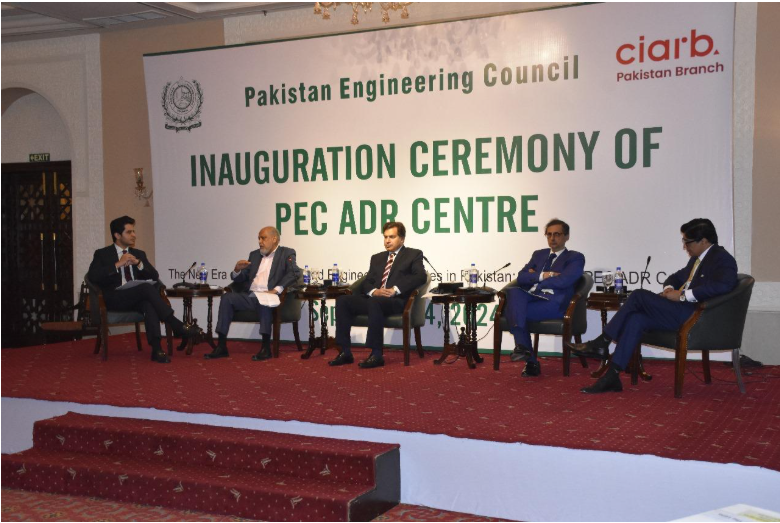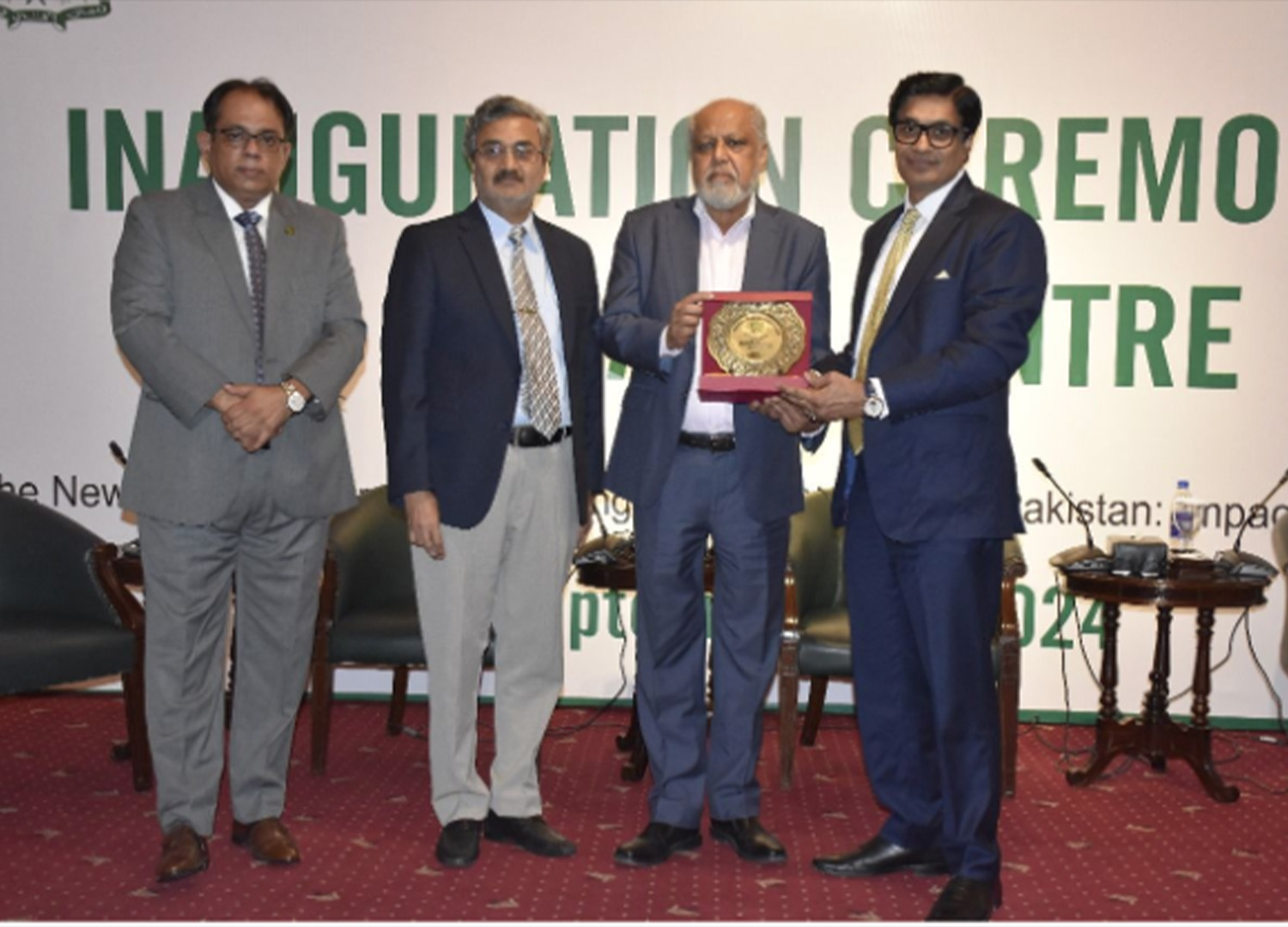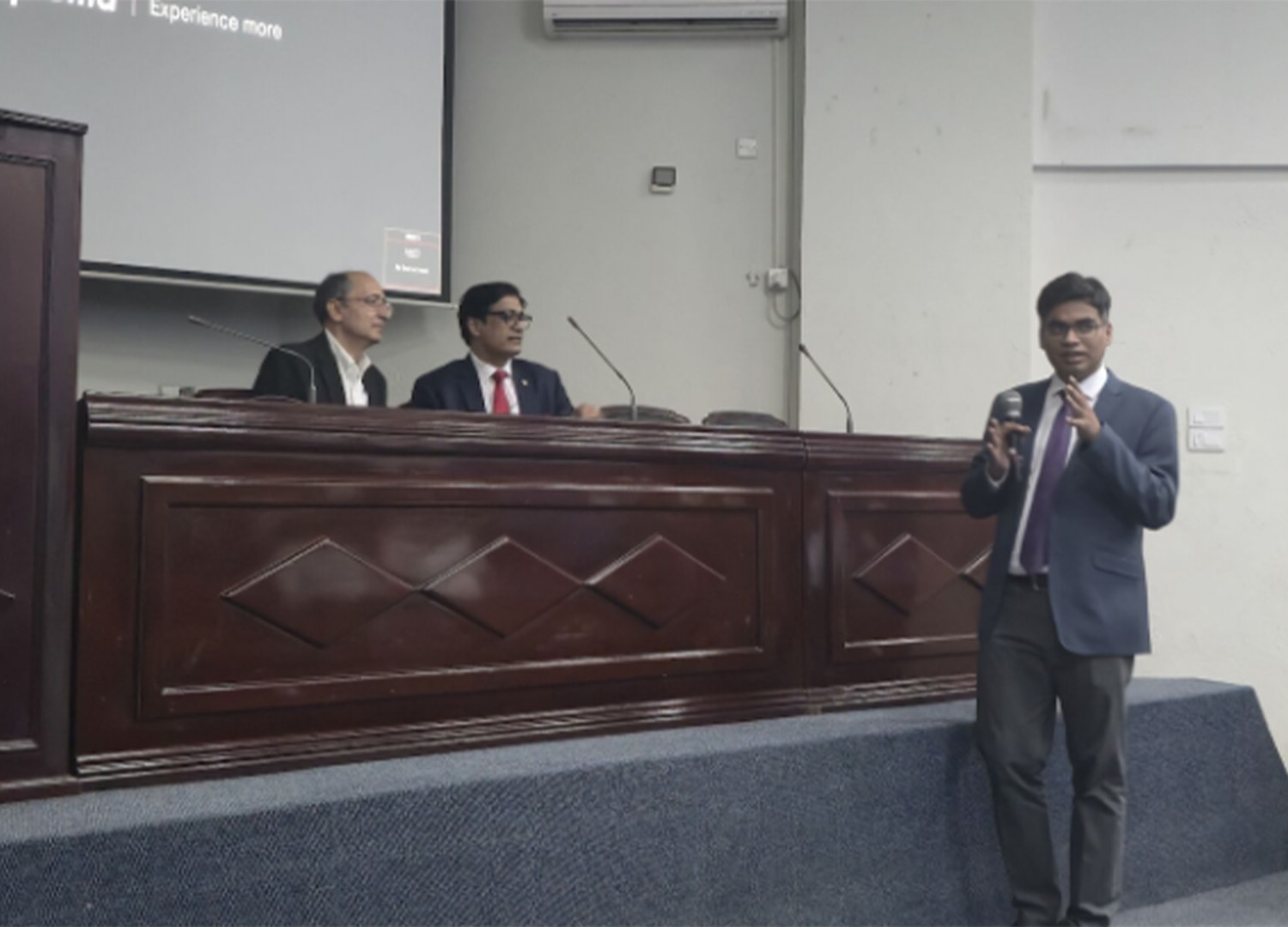Mian Sheraz Javaid Joins an Expert Panel the International Bar Association Annual Conference in Mexico
Mian Sheraz Javaid represented Pakistan during the International Bar Association Annual Conference in Mexico City from the 15th to the 20th of September, 2024. As a participant, he was part of a panel discussion moderated by Virginie Colaiuta from LMS Legal LLP and Jalal (Jil) EL AHDAB from Bird & Bird. Alongside fellow experts Cecilia Azar, Eric Franco FCiarb MSc, and Hermann Knott, they discussed the subject of "Mediation for Construction Disputes: Is it Successful? What Does it Take?".
This conference on construction disputes brought together four distinguished experts in arbitration, dispute resolution, and construction law, whose extensive experience spans a range of sectors including energy, infrastructure, and construction. Their insights provided valuable perspectives on how to manage disputes in complex, large-scale construction projects, particularly when multiple jurisdictions are involved. The key participants in the discussion were:
- Cecilia Azar, co-leader of the arbitration practice at Galicia, specializes in alternative dispute resolution (ADR), particularly for complex domestic and international disputes in energy, infrastructure, and construction. Cecilia has a deep knowledge of Mexican law and its application in cross-border construction disputes. She has held significant leadership roles in the ADR field, including serving as president of the Mexican Institute of Mediation, a member of the ICC International Arbitration Court, and co-chair of the ICC Advanced Arbitration Academy for Latin America. Her work has focused on utilizing ADR to resolve disputes efficiently and effectively.
- Eric Franco, a lawyer with over 20 years of experience, provides legal and contractual advisory services for large international infrastructure and construction projects across Latin America, Europe, and Asia. His expertise covers a broad spectrum of construction disputes, particularly in sectors like electricity, mining, and construction. Eric has held leadership roles in prominent organisations such as Ciarb, ITA, and Alarb. In addition to his advisory work, Eric has served as General Counsel for Engie Energía Perú and has contributed greatly to the development and implementation of dispute boards (DBs) and arbitration in major projects.
- Hermann Knott, a partner and attorney-at-law at Kunz Rechtsanwälte, brings over 30 years of experience in M&A, advising industrial and financial investors on business acquisitions, joint ventures, and restructurings. Hermann’s practice spans key markets like Germany, New York, and Paris, where he has worked on major transactions and legal matters. His insights into commercial and financial transactions contribute to understanding how construction disputes intersect with business law, particularly in projects with significant financial implications.
- Mian Sheraz Javaid, a highly experienced construction lawyer and barrister, has over 20 years of expertise in managing complex construction disputes, including litigation, arbitration, and ADR. Combining his background in civil engineering with legal knowledge, Sheraz specialises in drafting and negotiating construction contracts, advising on dispute avoidance, and handling complex dispute resolution matters. His practical experience in both technical and legal aspects of construction law makes him an authoritative figure in resolving disputes in this sector.
THE CONFERENCE
The conversation delved deeply into the role of mediators in cross-border construction disputes, particularly when these disputes involve multiple jurisdictions with differing legal systems. Construction projects are often governed by contracts that span various countries, and disputes that arise can be complicated by differences in legal systems, languages, and cultural contexts. As construction projects tend to bring together parties from diverse legal backgrounds—common law, civil law, and more—a mediator’s understanding of these differences is crucial in facilitating an effective resolution.
Cecilia Azar emphasised that mediators involved in cross-border construction disputes must be familiar not only with the technical aspects of construction but also with international legal frameworks such as FIDIC contracts. These standardised contract terms are widely used in global construction projects and help establish a common framework for addressing issues like delays, cost overruns, and defects. However, their interpretation can vary depending on the legal system under which the contract is being enforced. Therefore, a mediator must have a nuanced understanding of the legal doctrines of the parties involved.
Eric Franco elaborated on the advantages of dispute boards (DBs) in preventing conflicts from escalating in large-scale construction projects. Unlike mediation, which is often a reactive process triggered after disputes arise, dispute boards are embedded into the project at its outset. This continuous presence allows the DB to monitor the project’s progress, address issues as they arise, and provide timely interventions before conflicts escalate into more serious disputes. This proactive nature is especially important in long-term projects, where delays and misunderstandings can lead to significant financial and logistical problems. Dispute boards help ensure that disputes are dealt with efficiently and that the project timeline remains intact.
Eric also noted that dispute boards can either make binding or non-binding decisions, depending on the terms of the contract. The flexibility in their decision-making authority ensures that disputes can be resolved quickly without the need for lengthy negotiations or litigation. In cases where binding decisions are made, DBs help maintain momentum in the project, avoiding unnecessary delays and preventing escalating tensions between the parties. According to research by the Dispute Resolution Board Foundation, dispute boards are successful in resolving around 98% of disputes without further legal action, demonstrating their effectiveness in maintaining project timelines.
Sheraz also highlighted the importance of dispute boards in offering consistent and real-time dispute resolution. In large construction projects, decisions often need to be made quickly to avoid project delays. Having a dispute board that is familiar with the project’s intricacies and contractual framework enables it to provide immediate, informed decisions that keep the project on track. This contrasts with mediation, which may not always be suitable for projects that require quick, decisive action.
The discussion also addressed the challenge of power imbalances in construction disputes, particularly when there are significant differences in the financial capacity and legal resources between the parties involved. For example, project owners and general contractors may have more bargaining power than subcontractors, which can undermine the fairness of the mediation process. To mitigate these imbalances, Cecilia Azar emphasised the importance of equal participation during mediation. Mediators must ensure that all parties—especially the subcontractors—have the opportunity to voice their concerns without being overshadowed by more powerful parties. Techniques like caucusing, where the mediator meets with each party individually, can help facilitate this process.
Eric Franco and Cecilia Azar further stressed the importance of transparency and information sharing during mediation. In construction disputes, larger parties such as project owners or general contractors often have better access to key project documentation and legal expertise, which can place subcontractors at a disadvantage. Mediators can address this by ensuring that all parties have access to the same information, ensuring that decisions are based on a fair understanding of the contractual obligations and the issues at hand.
The conversation also touched on the importance of focusing on mutual interests rather than positional bargaining in mediation. Mian Sheraz Javaid explained that reframing issues to focus on common goals—such as the successful completion of the project or the preservation of long-term business relationships—can help balance power imbalances. By emphasising shared interests, mediators can foster more collaborative problem-solving and arrive at solutions that benefit all parties involved.
In addressing delay claims and extensions of time (EOT) disputes, the experts noted that mediation’s flexibility makes it a suitable option for resolving less contentious disputes. Mediation allows for creative solutions tailored to the specific needs of the project, helping maintain relationships between the parties involved. However, as Eric Franco pointed out, mediation lacks the enforceability of arbitration, which is often needed when the financial stakes are high or when finality is necessary. Arbitration offers a formal, legally binding resolution, ensuring that decisions are enforceable across jurisdictions. The New York Convention provides a framework for recognising and enforcing arbitral awards, making arbitration particularly valuable for international construction disputes.
While mediation offers flexibility and preserves relationships, arbitration is generally more reliable when it comes to ensuring compliance with the outcome. Cecilia Azar and Mian Sheraz Javaid agreed that while mediation is an ideal option for disputes where cooperation is key, arbitration provides a stronger mechanism for resolving complex, high-stakes disputes where legal enforceability is crucial.
CONCLUSION
In conclusion, the experts stressed that the choice between mediation, arbitration, and dispute boards depends on the nature of the dispute, the desired outcome, and the specific characteristics of the project. Mediators and dispute boards must possess a deep understanding of the legal, technical, and cultural aspects of the project to facilitate an equitable and effective dispute resolution process. The ultimate goal is to ensure that disputes do not derail construction projects but are resolved in a manner that is fair, efficient, and conducive to the long-term success of the project.


